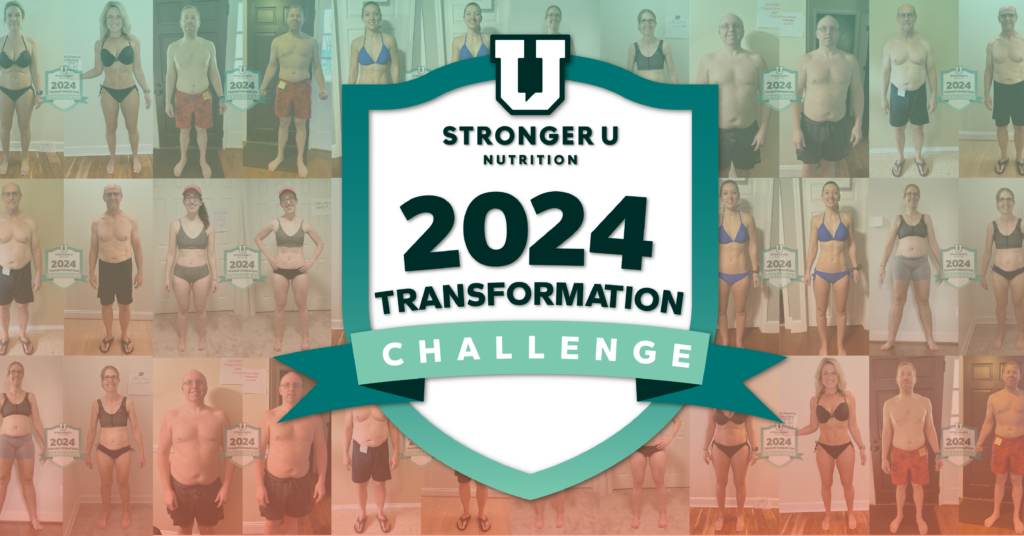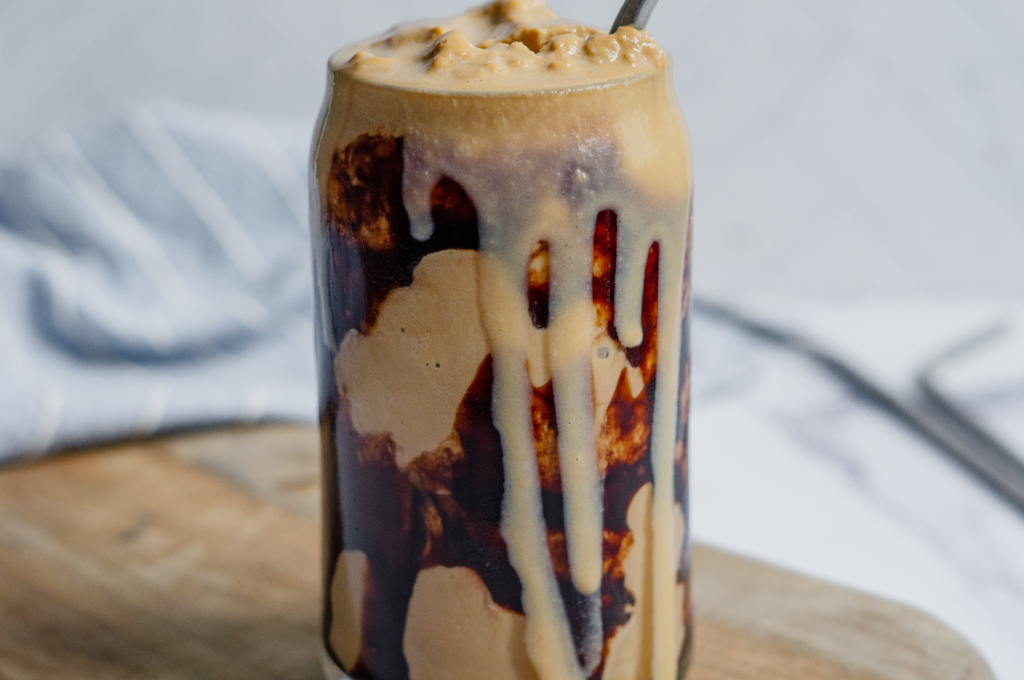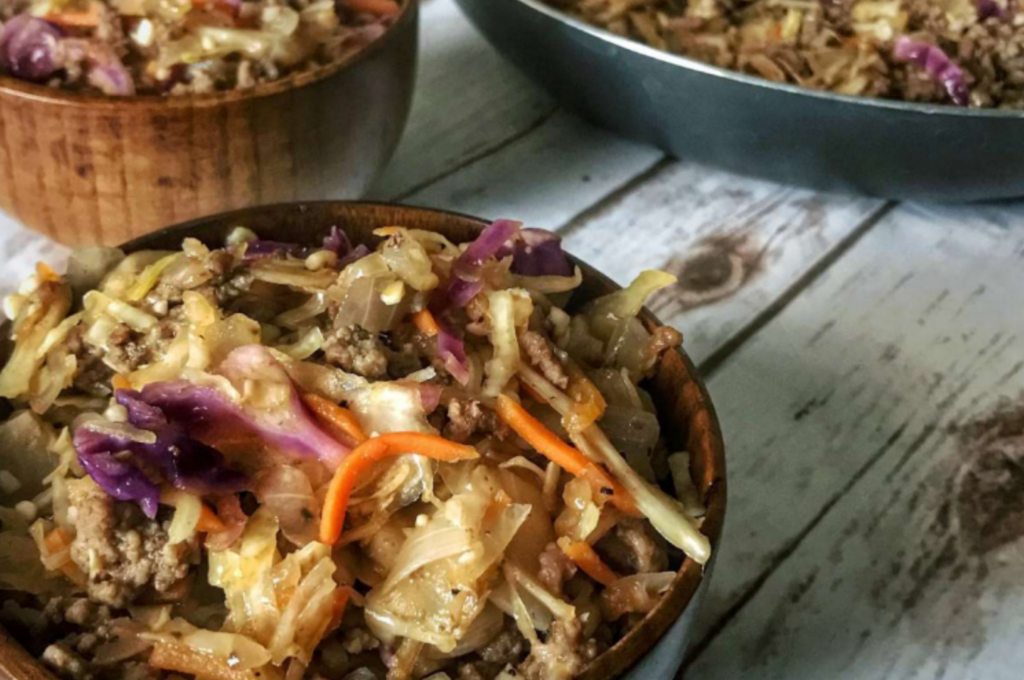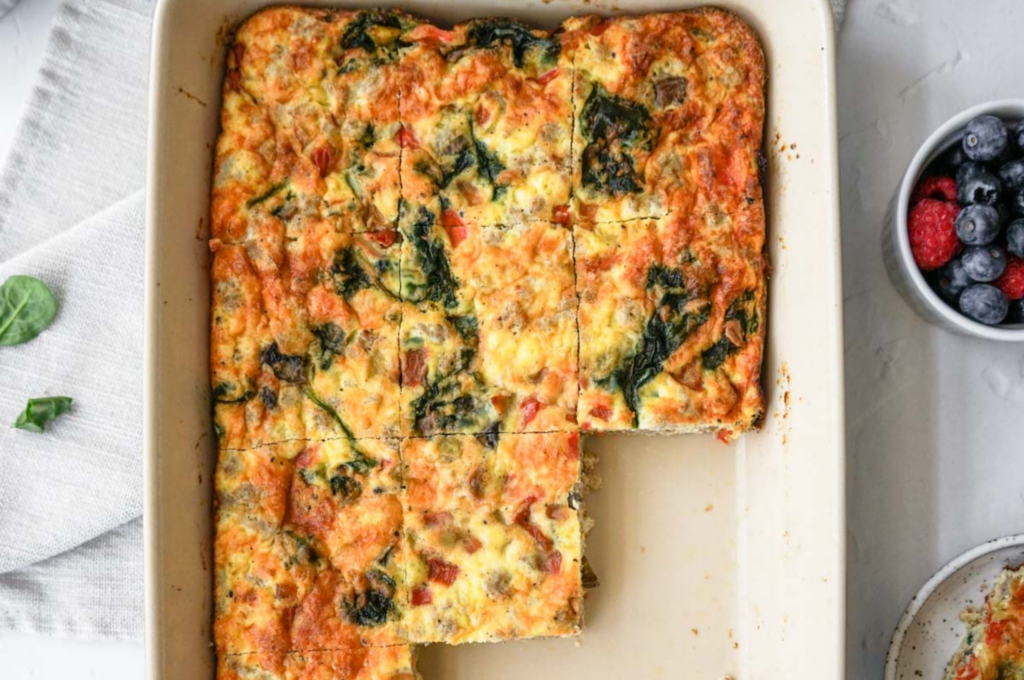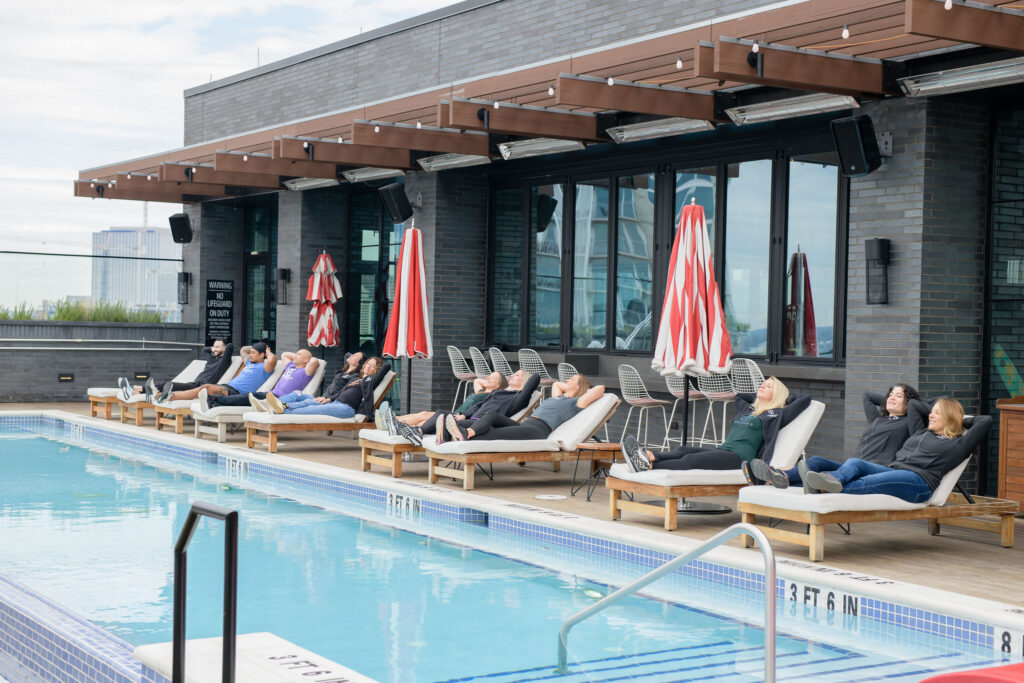There is a common goal for those who come to Stronger U: lose weight. And over the last few years, SU has seen a combined 250,000 pounds lost by more than 25,000. For many of those people they moved from the depths of a cut back up towards maintenance. Some even moved beyond that and decided to focus on a bulk and add more lean muscle. No two paths are the same at Stronger U. But what the heck are you supposed to do if you’ve lost weight, kept it off, and you’re still hanging around here at Stronger U?
For those who have been with Stronger U for more than 18 months, we don’t talk a lot about what life is or could be for you. You’ve fought the battles and you’ve won the war, now you’re doing the hardest part: ruling over this new kingdom.
And if there’s anything I’ve learned from Game of Thrones, it’s that everyone wants to be king/queen, but when it comes to “ruling” there’s no handbook on what to do. Once you’ve gained the crown you sought when you signed up with SU, you may face a similar question: what the heck do I do now?
The strategies below are ones that long-term SUers may find beneficial in terms of helping them turn “this” thing you’ve done into a lifestyle.
Shift Your Focus to Performance Goals
At Stronger U, the ultimate goal is to get to maintenance. Or, at least to get to a place where eating food doesn’t make you 1) gain weight or 2) feel you with dread. And that is really what maintenance should be: a place where you feel confident with your choices and know how to get back on track when you fail.
Ok. So that sounds amazing. But if you’re not trying to get lean, eating for muscle gain, or work towards maintenance, what the heck are you supposed to do with your life now?
If you’ve mastered (or greatly improved) food’s role in your life, then use this time to focus on things outside of the kitchen.
Shift your focus to the physical. Do something now that makes your body stronger and better. Take up lifting weights to build muscle and strength. Join a yoga class. Sign up for a 5k and begin training for that. Or do like all the cool kids these days and get a Peloton (you guys are taking over the world!).
Food is easier for you now. You know how to lose body fat and how to recover from weekends where things get out of hand. And you have more tools in place to keep the weight off for years to come. Now is the time to focus on something new. And physical pursuits are a great way for you to see and make progress without worrying about a scale.
So, find new ways to push yourself. Invest now in gaining strength and moving your body in ways, that before SU, maybe you weren’t capable of doing.
Quality Over Quantity
At Stronger U, we believe in Structured Flexibility. Meaning: you can have anything you want as long as it fits into your own personal plan. Nothing is off-limits. Eat pancakes if you want, chocolate, ice cream, veggies, meat, bread, rice, pasta, burgers, all the stuff that you once heard were “bad” are fine on the program (as long as you fit them in).
This is hands down the best approach for fat loss. You’re never outlawing anything. Yes, there are restrictions in terms of how much you can eat, but not in what you can eat. But this brings up a very interesting thought. One I call the Jurassic Park Conundrum.
In case you don’t remember the film, Jurassic Park is a story about scientists taking genetic engineering to a new realm: by bringing back creatures long extinct. And there’s a major philosophical line dropped by Jeff Goldblum’s character in the movie. While discussing the park and how they will open it to the public, Goldblum’s character instead questions the science team’s ethics.
“Your scientists were so preoccupied with whether or not they could, they didn’t stop to think if they should.”
So, what’s that have to do with nutrition and Stronger U? A lot actually. Scroll through the Facebook group and you will see a plethora of recipes for cookies, cakes, pancakes, and numerous other processed goodies that are used to “hack” or “engineer” a more healthy treat.
Of course, if it fits, great. You found a way to make things work. But I think we’ve become far too occupied with what we can do instead of asking ourselves if it’s something we should do.
A client and I discussed this recently. Here’s a snippet of that exchange:
“It’s NICE to have a more “macro friendly” hack for something like cakes or sweets or those comfort savory foods, but I think we should be using them as treats here and there. I know with my own cooking I’ve noticed myself using fewer whole foods than I did in the past. And as I noticed this in myself and what seemed to be more recipes like this popping up in the group, I wondered if too many people are starting to rely on those hacked items as daily foods.
Making hyper-palatable foods macro friendly doesn’t make them any more differentiated or distinguished to our brains as less hyper-palatable.
If you have them every day how are you learning to deal with cravings? Like, just because you can have cookies every day, should you? I feel that by doing that you’re not learning to break the habits that brought you here.”
A recent study performed at the National Institute of Health’s Clinical Center in Maryland investigated whether highly processed foods do cause us to consume more food than less processed foods. The study placed 20 subjects on a two-week diet of ultra-processed food and then two weeks on more whole foods. Here’s what that study found:
Participants had higher energy intake on the ultra-processed diet. Shocker, right?
With ultra-processed foods, participants consumed 508±106 calories per day. Those extra calories came from carbs and fat, ~280±54 cals/day from carbs and ~230±53 cals/day came from fat. Their weight also went up by 0.8±0.3 kg. However, on the unprocessed diet, participants lost around 1.1±0.3 kg. (you want that done here? The number break down?)
Basically:
Those who consumed ultra-processed foods, ate somewhere between 400-615 extra calories per day, with the majority of those calories coming from carbs and fats.
A few more studies have shown that unprocessed foods are better choices than highly-processed foods. A 2010 study found that whole foods have a greater impact on the thermic effect of food than processed foods. Meaning: your body spends more energy (calories) to digest a steak or a potato than it does digesting ground beef and fries.
Sure, though those cookies may be low carb or those pancakes are protein-filled. Is it better for you overall? Perhaps the question you need to ask isn’t if you “can” make treats work for you every day, but rather, should you make treats work for you every day?
I’m not done talking about quality. There are other things you can do to improve your quality of life outside of losing body fat by counting macros. And when you’re in maintenance or with SU long-term, you might want to shift your attention to getting more quality in your life.
For instance, sleep quality is crucial. In a former write-up of SU’s Coaches Journal Club, we told you about a study that compared the body changes between people who got 5.5 hours of sleep and 8.5. Those with fewer hours of sleep saw more fat-free mass loss than those with more hours of sleep. And fat-free mass isn’t the mass you want to lose.
Alright, so you could focus on more quality food(s) and getting more quality sleep. But there are other ways you can look to increase your quality of life. Perhaps it’s time to take what you learned with SU and apply those habit-building skills to tackling other areas of concern in your life.
Or now that you’ve bested demons of food and extra weight you spend more time enjoying life. Sign-up for dance classes you never thought you’d take. Take an art class and learn a new creative skill. Or go get some more mani/pedi’s. Now’s the time to keep your habits of nutrition moving forward, but it’s also time for you to shift focus to making other aspects of your Self better.
Macros Aren’t the Only Way
I’m thankful to my parents for a lot of things. One, they raised me to believe that manners are always welcome (and preferred). Second, my Dad taught me the value of hard work (even if it took decades to sink in). Third, and this is probably the most important, my parents raised me to listen to good music. Most of it was classic rock, but music was always playing around my house or in the car. My Mom’s favorite band was Fleetwood Mac.
One their biggest hits came off of the album, Rumours. Go Your Own Way is a song you probably know. You’ve probably played air guitar or air drums to it at some point. But for those who are long-time SU members, eventually, you have to go your own way.
What I mean by that is that not only will you someday not have a coach in your pocket, but someday, it’s our hope, that you find a way to eat without counting every gram/ounce on a scale. Heck, our dreams are that you find a way to break the chain of macros and find what works for you.
How can you do that?
I’m not saying you can be chaotic with what you choose to eat or how you approach your lifestyle. Truth be told: You will have to find some order outside of macros/calories alone. But it could be as simple as using your hands as measuring tools — a palm-sized protein at every meal, a fist full of carbs, and a thumb-sized portion of fat(s) could be one way you build meals. You could continue the 3-3-3 template and eat the same foods day in and day out; opting for more whole foods and fewer processed foods, of course.
Or you could follow what I call EPaP and The Clock Method. EPaP stands for: eat produce and protein at every meal.
That means for breakfast might you could toss spinach, peppers, onions, some diced ham, and a couple of eggs into a scramble. For lunch, have a salad with chicken breast, mushrooms, red onions, peppers, and a dash of olive oil for a side. Wrapping up the day, at dinner, you could have a lean cut of steak with some grilled asparagus and roasted broccoli.
Pretty simple concept. So what’s The Clock Method and how does it work with EPaP?
Imagine a plate in your mind. They’re round like the face of a clock, right? So if you utilize the idea of EPaP, The Clock Method states that from 6-12 your plate is covered in green leafy veggies.
Then from 12-4, you should have lean protein like chicken, fish, shrimp, turkey, or lean cuts of beef. What about the empty space between the hours of 4-6?
Here’s where you’ll choose to either load your plate with a single carb source like rice, potatoes, pasta, quinoa, etc, or some sort of fatty food like avocado, butter, oil, creamy sauces.
Tracking what you eat teaches you awareness. And it reveals a ton about your habits. But tracking macros isn’t something you need to do forever. That doesn’t mean you’re never going back again, either. Maybe you need to count macros when you’ve gotten out of control for a bit (it happens, trust me, even to coaches). But there are other ways to structure and keep order to your meals. Try using your hands instead of the scale. Or use the principle of EPaP and The Clock Method. But look, if you go your own way, don’t stop trying to find what works best for you.
Do More Advanced Stuff
At Stronger U, we believe in the basics. Master those, and anything is possible. But the world of nutrition always seems to have something new and exciting popping up. Some of these things are things we mention in our live seminars. But we spend maybe 2 minutes on them and rarely dive deep into them.
Strategies like Intermittent Fasting (IF), Carb Cycling, or eye-balling are all things that you might want to try once you’ve nailed the basics. Now, that’s not to say that some people might not want to try their hand at intermittent fasting or carb cycling from the get-go, but that’s a decision your coach would make based on individual needs.
But why would you want to try your hand at IF? Well, maybe deep down you really hate breakfast. Like, you’d much rather get your day started and get some tasks done before you eat. Cool. Then IF might be a strategy you want to try. Or maybe you spend a lot of time traveling in airports or driving for work. And the thought of eating less than stellar airport food or fast food makes you shiver with disgust. Cool, I feel you on that one. Fasting might be great for you because it will help you avoid highly-processed junk that you know won’t make you feel great.
So how do you do it? Technically, there are a few ways you can approach fasting.
- 5:2 Protocol: in this scenario, you would eat as much as you want for 5 days and then fasting completely (no food at all) for 2 days.
- 24-Hour Fast: in this protocol, you alternate 24-hour fasts every other day. Ex: eat until 8pm Monday evening, then fast until 8 pm Tuesday evening; then consume food until 8 pm Wednesday where you’d fast again.
- Fasting-mimicking diet: This protocol requires a 3-5 day fast a handful of times a year.
- Time-Restricted Fasting: This is the most well-known type of fasting, what some call “Lean Gains.” Basically, you choose an eating window of 8-10 hours, and the rest of the time you’re fasting. Ex: eat from noon-8 pm; fast from 8 pm-noon.
Time-Restricted Fasting is, for most people, probably the easiest to do. If your life resembles the normal 9-5, you’d find this protocol fits into your life pretty well. Get up, skip breakfast, get the kids ready for school, shuttle them off to school, go to work, skip the mid-morning snack(s), and then consume your first meal at lunch. And it was this style of structuring your day that I used when my fitness journey started. I still use fasting on rest days (more on carb cycling below) or when I travel.
“Robbie, I heard there are magical properties to IF. Like it’s this unicorn of health we’ve been missing out on. Is that true?”
There is some evidence that fasting may have benefits. But some of those studies were performed on rats. As far as humans, we don’t have enough conclusive data yet to say otherwise. Ultimately, fat gain and fat loss come down to energy balance, skipping breakfast isn’t a magical fat loss tool.
Another advanced protocol is carb cycling. Good thing Stronger U has a coach who wrote an entire book on this subject, as well as a book all about macros. So I asked Coach Matt Dustin to give us the rundown on why he thinks carb cycling can be beneficial for long-term clients.
Carb Cycling
From Matt Dustin:
“The main reason I like to use carb-cycling is simply for the variety it can give, especially with people who have been counting macros for a while. If you get tired of planning for the same macros day after day, having high days and low days can break up the cycle a bit and challenge you to get creative (especially on low-carb days), plus it may give you performance benefits if use the higher carb numbers on higher activity days.
If you’ve been at this for a while and you’re looking for a new way to challenge yourself, carb-cycling is a nice way to break up the routine. Also, if food is getting low toward the end of a diet, sometimes having one or two higher days thrown in can be a nice mental break, assuming your weekly calorie balance is still correct – the other days have to be lower, of course.”
Yes, having higher and lower days means you’re planning more. But it doesn’t mean you need to move away from the basics. In fact, carb cycling can be pretty freaking easy if you keep it simple. But, because you do need to keep up with workout and rest day macros, it might not be an ideal strategy for those with kiddos. We all know plans can change with kids pretty quickly.
Carb cycling might be great for you if you find that you’re hungrier on workouts days and less so on rest days. But it is an added smaller layer of complexity that, for some, will just create too much of a headache.
Practice More Listening
“I remind myself every morning: Nothing I say this day will teach me anything. So if I’m going to learn, I must do it by listening.” – Larry King
Listening is why Larry King is the best talk-show host in history. He asked questions to his guests and then sat with his hand on his chin and listened to every word. And his follow-up questions came not from a cue card, but from something his guest said. And if there’s one thing I can tell you about life: the more you listen, the more you learn.
But how often do you listen to yourself? All of us walk around with stories we tell ourselves inside our heads — “I’m not smart enough; I’m a failure; I’m just like my parents; What an idiot I am;” etc. And far too often, these stories become our reality. These stories don’t have to become our reality. We can choose differently.
I’m not here to dive deep into psychological things. But when those moments arise, when those replayed stories start spinning again, one way to stop them is to pause and ask yourself, “am I really?”
This question also works with hunger. We’ve all had times where stress is high. And the first thing we want to do is eat food that makes us feel better. Heck, even grandma made us cookies when we felt bad. But were we really hungry right then and there? Have you ever stopped when yourself in the middle of your craving(s) and asked yourself if what you’re experiencing is true hunger?
I’m not a parent. But watching my niece and nephew I can tell you that they have a pretty keen intuition about when they’re hungry (it just might not match up with our proposed times of eating). Sometimes all they want is a taste of a cookie. They don’t need a whole box. Or half a box. A few cookies suffice.
But if you ask them if they’re hungry enough to eat a plate of broccoli, they’ll probably tell you no (or contort their face into a look of disgust). And this is a great question to ask yourself when you’re hungry: am I hungry enough to eat a head of broccoli?
- If the answer is yes, then you are probably experiencing real hunger.
- If your answer is no, then you’ve got to explore “why” you want food.
Are you stressed? Are you an environment where food surrounds you? Are you feeling pressured to eat from peers? Do you feel like you “have” to eat to fit in with everyone else? Are you mad about something and know that food will make you feel better?
There’re a lot of questions you can ask yourself here. But learning to understand the difference between actual hunger and phony hunger is an important skill to hone. Gaining a better understanding of your body—getting more in tune with how you work on the inside—will help you maintain more effectively what you’ve gained on the outside.
Wrapping It Up
Once you’re done losing the weight and inches you want with Stronger U, you still have a journey to go. It will be different than weighing on a scale and counting macros. When you have the basics mastered, more complex strategies like the ones above can give you new goals to shoot for that aren’t the scale. This keeps all of this fresh, while allowing you more time to examine how you want your lifestyle to be post-SU. Maybe you try fasting and love it. Or you find that carb cycling helps you on those intense training days. Or perhaps taking the time to sit and listen to your body helps you improve your relationship with your inner you.



